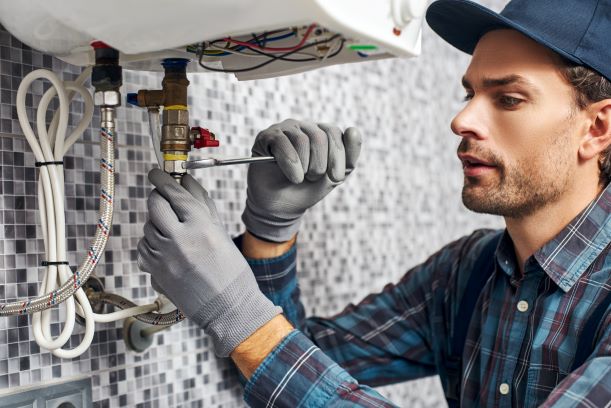What Qualifications Do You Need To Become A Plumber?
Plumbers operate across households, businesses, and industries. You could be assembling, maintaining, and fixing heating and drainage systems or building water systems and related appliances like washers and showers. You can also install and maintain air conditioners and ventilation. As a plumber, you’re going to work with your hands and fix domestic and commercial plumbing problems.
Plumbers are in high demand, and the biggest explanation for this is that there’s simply not enough of them to do the workloads. That’s why plumbing is a lucrative career as it has a tremendous opportunity to expand the job. You’re able to have job security, and along with that comes the comfort that you’re never going to be out of work.
Every building includes pipework, whether it’s somebody’s house or a hotel or construction site.
In reality, this planet always needs plumbers! So there you have it plumbing is a great choice and hopefully as we explain the qualifications you need you’ll be a bit clearer in your mind as what to do next.
What are the basic qualifications needed to become a plumber?
Plumbers require expertise and qualifications to show that they are capable to do the work. Typically you’re going to need Grade D or higher GCSEs, and with Math, English and Science.
Plus, you will have to obtain an industry-recognized NVQ level 2 or 3 certifications. National Vocational Qualifications (NVQs) or SVQs in Scotland have been the main category of plumber qualifications ever since the 1980s.
The required credentials, combined with plumber skills, are crucial to ensuring that you would work safely and also to a good standard. For qualifications to be accepted, they must be issued by an approved organization including Pearson or City & Guilds and plumbing training courses can be found nationally over the UK
NVQ Level 1
NVQ Level 1 includes regular and basic industry information to help you obtain an apprenticeship or junior role with an organization, a prerequisite for those seeking to follow an NVQ Level 2 or 3 plumbing course.
This will help you get the crucial plumber training while you learn the abundance of functional skills you need before you could even move on to more technical NVQ levels. It will usually take around four months to a year to finish.
NVQ Level 2 or SVQ 2 in Scotland
When you’re just a beginner in the plumbing industry, level 2 is a great option because this is where you’re going to be exposed to the field of plumbing and you’re going to learn all the practical skills you need.
To complete this course, you are required basic specific knowledge of plumbing or ventilation, ideally in addition to basic functional skills. You’re going to have to go through job placement and receive guided training.
Then you’re also going to sit an examination, checking your analytical and numerical knowledge, necessary skills for any plumber. To show your abilities, you will have to submit a portfolio of projects and pass the performance evaluations at your workplace.
The level 2 mandatory units include:
- Safe and healthy work methods
- Environmental protection practices
- Installation and maintenance of a cold and hot water facility
- Installing above ground drainage systems including maintenance strategies
- Maintenance and installation of central heating systems
NVQ Level 3 or SVQ 3 in Scotland
For all those who have accomplished level 2, the level 3 qualification applies specifically to anyone who already has a strong knowledge of plumbing and may even have sufficient experience in the sector and those who can work safely under minimal guidance.
Industry-recognized organizations recommend that you should get a career placement immediately after you begin your training, so while fulfilling the theory aspect in your local accredited training centre, you can put all your learning into practice. This will help substantially in finishing your practical units.
Level 3 covers a diverse range of strategies, including drainage, solar heating, hot and cold water services, water treatment systems, and gas and oil-fired equipment.
It also corresponds to the ACS safety evaluation system for gas plumbing solutions.
ACS assessment is necessary for registration with the Gas Safe Register. Having the approval from the Gas Safe Register would significantly increase the odds of gaining job opportunities since customers are far more likely to get a licensed plumber.
Just like with NVQ Level 2, practical and theoretical evaluations would have to be carried out along with the assessment in your workplace.
It may take 3 years to attain this level, however, this plumbing qualification guarantees that you are officially qualified and a professionally trained plumber.
The level 3 mandatory units include:
- Safety assessment criteria for gas plumbing
- Electronic work on domestic and commercial plumbing systems and components
- Install solar thermal hot water systems
- Service and manage oil pressure jet equipment
- Installation, commissioning and re-use of rainwater and greywater services


Comments are closed.